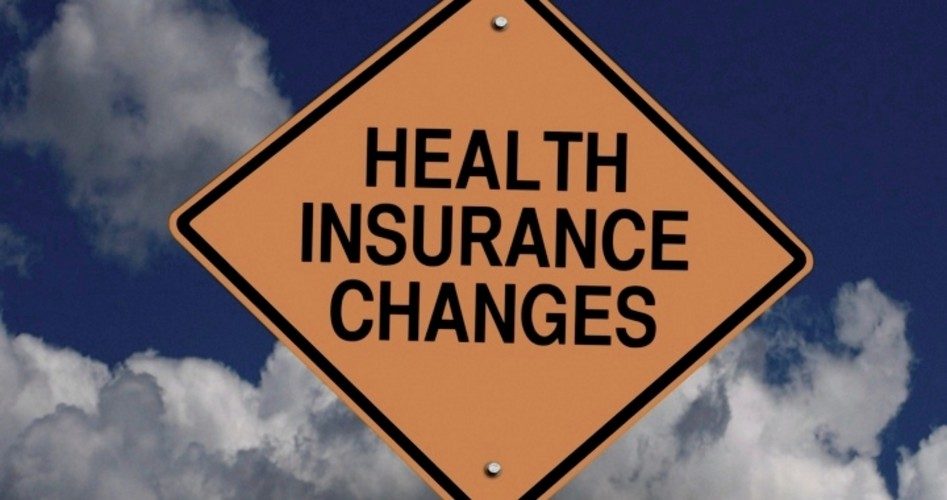
According to a new Gallup survey released April 7, the number of ObamaCare sign-ups is not as high as the White House has been claiming. The survey shows that the number of uninsured Americans has decreased by less than three million, not the 7.1 million the White House is alleging.
Why the discrepancy? Fox News pointed out: “The administration’s numbers include people who switched their previous coverage, as well as people who have not paid their first month’s premium, and who would therefore still be uninsured.”
Analysts at Goldman Sachs had warned that approximately 20 percent of those who signed up for ObamaCare will not follow through, bringing the number of enrollees closer to five million (based on the assumption that seven million people actually signed up per the White House), about the same number of Americans whose coverage has been cancelled.
Immediately following the deadline to sign up for ObamaCare, critics called into question the final tally touted by the White House and noted that the healthcare law ultimately failed to do what it set out to.
The Boston Globe observed in the days following the close of the March 31 deadline, “The vast majority of those signing up to date were previously covered, a travesty given the bill’s 10-year cost of over $2 trillion.”
The Globe determined that those figures were even less impressive considering the following:
Each year, millions of uninsured Americans find coverage through a new employer, Medicaid, or other means. In fact, the number of uninsured has fallen every year since peaking after the 2008 recession. Many of the 1.2 million newly insured through the exchanges likely would have found coverage regardless.
More evidence showing that the number of healthcare enrollees the White House is touting does not mean what the White House claims it does comes from a survey published by the consultancy McKinsey & Co. This survey found that just 27 percent of new enrollees were actually uninsured before signing up for insurance. Further, the study revealed that just one in 10 Americans who are eligible for ObamaCare have chosen to enroll.
An earlier Gallup Poll found that though the number of uninsured Americans has dropped from 17.1 percent at the end of 2013 to 15.9 percent today, the number was actually lower before Obama took office, standing at 14.4 percent.
The April 7 Gallup Poll also looked at the trends in signups from the start of open enrollment to the deadline. The numbers showed that the percentage of signups spiked at the end of the third quarter; however, analysts believe this could be attributed to people losing their prior coverage because of the healthcare law.
Millions of insured Americans lost their insurance last year, receiving letters from their insurance companies stating that their current plans had not satisfied the requirements of the Affordable Care Act.
The Daily Caller reports,
All plans must include maternity coverage, for example — including plans for men and post-menopausal women. Even customers without children must purchase plans that cover pediatric services. Other newly established essential benefits include hospitalization, mental-health services and preventive and wellness services.
The massive number of cancellations of insurance policies poses a major problem for President Obama, who had promised that Americans would be able to keep their insurance if they wished to.
The April 7 Gallup poll shows that the biggest insurance gains were felt by lower-income families and African-Americans.
In another problem for the administration, it has become obvious that the percentage of young people who signed up for insurance is not nearly as high as it had hoped. Estimates show that the number of new enrollees amongst 25- to 34-year-olds is particularly paltry.
Forbes reported, “If you give Obamacare credit for the entire difference in the trend between 25-34-year-olds and 18-24-year-olds, since 2008, you get to a coverage expansion of between 889,000 young adults (on a 2008 population base) and 931,000 (on a 2012 population base). Again, that’s not nothing, but it’s far from the 3 million cited by Obamacare partisans.”
Americans in the 18-34 age range are the most desirable for the administration since they are mostly healthy, and the White House had set a goal for one-third of the enrollees to fall into that category. If more unhealthy, older people sign up for the plans than young, healthy ones, the insurance companies will be saddled with an influx of costlier customers. The companies will likely pass those increased costs on to their customers, compelling the federal government to step in, using taxpayer dollars, to cover the financial losses suffered by the insurance companies.
But suppose more young people, and more people overall, were actually signing up for ObamaCare. Would that necessarily be a good thing? Put another way, should the “success” of ObamaCare be measured in terms of how many Americans enroll? If the answer were yes, then the way to maximize the “success” of ObamaCare would be simple: Get American citizen enrolled!
In truth, the number of people who have enrolled in ObamaCare and the merits of ObamaCare are two different things. A better way to look at the “success” of the healthcare law than looking at the number of enrollees was expressed by Cynthia Allen of the Bucks County (Pennsylvania) Courier Times, who wrote, “To millions of disillusioned Americans, the only number that matters is that following the dollar sign on their insurance bill, which has remained stubbornly high, and for many conjures memories of the president’s trifecta of broken promises — you can keep your plan, you can keep your doctor, your premiums will go down.”




